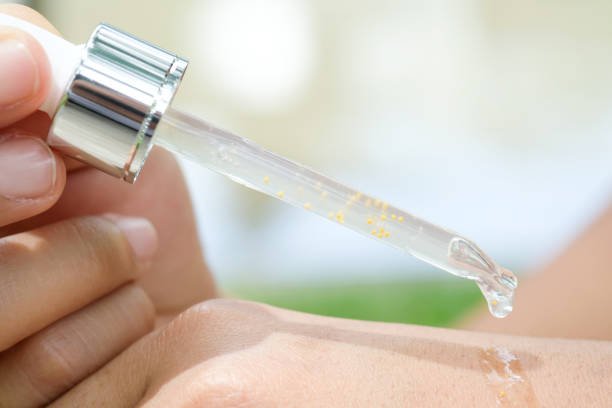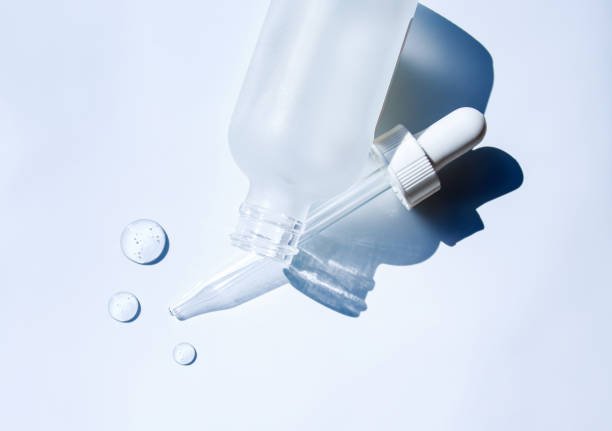Introduction
Hyaluronic acid (HA) has become a cornerstone in modern skincare, especially for those seeking hydrated, youthful-looking skin. Known for its ability to retain moisture, hyaluronic acid is found in a range of products, from serums to moisturizers.
But what exactly is hyaluronic acid, and why is it so beneficial for the skin? This article explores the uses, benefits, and frequently asked questions about hyaluronic acid, providing a comprehensive guide on this essential skincare ingredient.

What is Hyaluronic Acid?
Hyaluronic acid is a naturally occurring substance in the human body, particularly in the skin, connective tissues, and eyes. It acts as a humectant, meaning it helps the skin retain moisture by drawing water from the environment. With its capacity to hold up to 1000 times its weight in water, hyaluronic acid plays a vital role in keeping the skin hydrated and plump.
The Role of Hyaluronic Acid in Skincare
Hyaluronic acid’s ability to hydrate and retain moisture makes it a key ingredient in anti-aging and skincare products. As we age, our skin loses its natural ability to produce and retain moisture, which leads to the formation of fine lines and wrinkles. Hyaluronic acid helps to restore moisture levels, leaving the skin looking fresher and more youthful.
Benefits of Hyaluronic Acid for the Skin:
• Deep hydration: Hyaluronic acid deeply hydrates the skin by binding water to skin cells, maintaining moisture and elasticity.
• Anti-aging: It reduces the appearance of fine lines and wrinkles by improving skin texture and plumpness.
• Healing Properties: Hyaluronic acid supports skin repair processes, promoting faster healing of wounds and improving skin resilience.
• Suitable for All Skin Types: HA is non-irritating and works well even for sensitive or acne-prone skin.
How to Use Hyaluronic Acid in Your Skincare Routine
Integrating hyaluronic acid into your skincare routine is straightforward. You can use it both morning and night, typically in a serum or moisturizer. Here’s how you can maximize its benefits:
1. Cleanse Your Skin: Start with a gentle cleanser to remove dirt and oils.
2. Apply Hyaluronic Acid Serum: After cleansing, apply a hyaluronic acid serum while your skin is still damp. This helps seal in moisture.
3. Moisturize: Follow up with a moisturizer to lock in hydration and enhance the effects of HA.
4. Sunscreen (Morning Routine): Always finish with sunscreen to protect your skin from UV damage.
Best Practices for Using Hyaluronic Acid:
• Layering: Combine HA with other skincare products like niacinamide or vitamin C for added benefits.
• Hydration Support: Pair it with a good moisturizer to prevent water evaporation from the skin.
• Avoid Dry Conditions: Hyaluronic acid works best in humid environments. In dry climates, pair it with a heavier moisturizer to prevent it from pulling moisture out of your skin.
Hyaluronic Acid in Different Forms
Hyaluronic acid comes in various molecular sizes, and each has different functions in skincare products:
• High Molecular Weight HA: Works on the surface of the skin to provide a barrier against moisture loss.
• Low Molecular Weight HA: Penetrates deeper into the skin, offering long-term hydration and anti-aging benefits.
• Sodium Hyaluronate: A salt form of hyaluronic acid that has a smaller molecular size, allowing it to penetrate deeper into the skin layers.
Hyaluronic Acid and Other Skincare Ingredients
Hyaluronic acid pairs well with a variety of skincare ingredients:
• Vitamin C: Boosts the skin-brightening effects while enhancing collagen production.
• Niacinamide: Improves skin texture and elasticity, while HA maintains moisture.
• Retinol: Combats wrinkles and fine lines, with HA reducing the dryness sometimes caused by retinol use.
Who Can Benefit from Hyaluronic Acid?
Virtually anyone can benefit from hyaluronic acid, regardless of skin type. Here’s why:
• Dry Skin: HA is a powerful hydrator for those with dry, flaky skin.
• Aging Skin: Its plumping effect reduces the appearance of fine lines and wrinkles.
• Oily/Acne-Prone Skin: Since it is lightweight and non-greasy, it won’t clog pores, making it suitable for oily and acne-prone skin types.
• Sensitive Skin: It’s a gentle ingredient, often included in formulations for those with sensitive or reactive skin.
Potential Side Effects of Hyaluronic Acid
While hyaluronic acid is generally safe and well-tolerated, it’s important to patch-test new products to avoid any adverse reactions. Some individuals may experience minor irritation, but these cases are rare.
Frequently Asked Questions About Hyaluronic Acid
1. Can I use hyaluronic acid every day?
Yes, hyaluronic acid is safe for daily use, both in the morning and at night. For best results, apply it to damp skin to maximize hydration.
2. How long does it take to see results from hyaluronic acid?
You may notice immediate hydration and plumpness, but long-term results like reduced fine lines may take several weeks of consistent use.
3. Can I use hyaluronic acid with retinol?
Yes, HA pairs well with retinol, helping to mitigate the dryness that retinol may cause while keeping the skin hydrated.
4. Is hyaluronic acid good for oily skin?
Absolutely. Since hyaluronic acid is lightweight and non-greasy, it hydrates without clogging pores, making it ideal for oily skin types.
5. What’s the difference between hyaluronic acid and sodium hyaluronate?
Sodium hyaluronate is a salt form of hyaluronic acid with a smaller molecular size, allowing it to penetrate deeper into the skin for more intense hydration.
6. Should I use hyaluronic acid in the morning or at night?
Hyaluronic acid can be used both morning and night. In the morning, follow it up with sunscreen, and at night, lock in the hydration with a good moisturizer.
7. Can Hyaluronic Acid Cause Acne?
No, hyaluronic acid is non-comedogenic, meaning it doesn’t clog pores. If anything, it helps to balance oily skin by providing necessary hydration.
Conclusion
Hyaluronic acid is a versatile and essential ingredient in modern skincare, known for its ability to deeply hydrate, plump, and rejuvenate the skin. Whether you’re dealing with dryness, fine lines, or simply want to maintain your skin’s moisture barrier, incorporating hyaluronic acid into your routine can offer significant benefits. With regular use, this miracle molecule can help you achieve healthier, more youthful-looking skin.



Pingback: The All-in-One Benefits Of Castor Oil For Health And Skincare - Healthylify